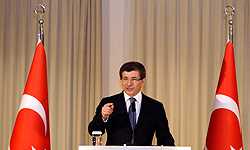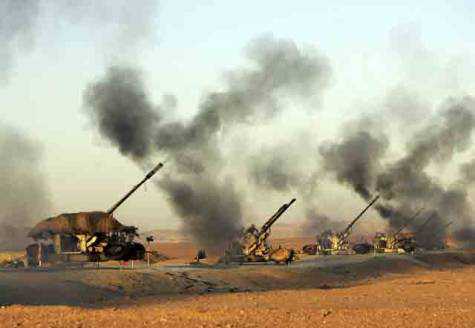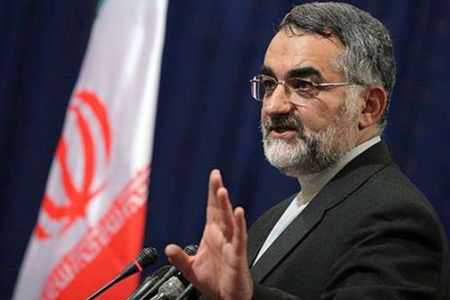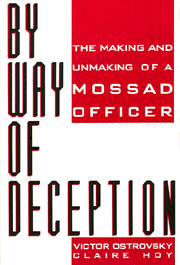U.S. And NATO Allies Escalate Military Buildup Against Iran
Rick Rozoff
The new Strategic Concept adopted by the North Atlantic Treaty Organization at its summit in Lisbon, Portugal on November 19-20 reiterated the U.S.-led military bloc’s determination to expand military partnerships and deployments throughout the so-called Greater Middle East, including in the Persian Gulf. [1]
The Alliance’s doctrine for the next decade contains the assertion that “we attach great importance to peace and stability in the Gulf region, and we intend to strengthen our cooperation in the Istanbul Cooperation Initiative,” [2] the reference being to the decision reached at the bloc’s 2004 summit in Turkey to upgrade partnerships with the seven members of NATO’s Mediterranean Dialogue program – Algeria, Egypt, Israel, Jordan, Mauritania, Morocco and Tunisia – and the six members of the Gulf Cooperation Council – Bahrain, Kuwait, Oman, Qatar, Saudi Arabia and the United Arab Emirates – to the status of the Partnership for Peace program used to graduate 12 Eastern European nations to full NATO membership over the last 11 years.
Bahrain, Kuwait, Qatar and the United Arab Emirates have formally responded to the initiative by forging bilateral relations with NATO, and Oman and Saudi Arabia have cooperated with the military alliance in ad hoc endeavors ranging from conferences to hosting visits of NATO naval groups. [3]
The United Arab Emirates (UAE) is also one of NATO’s 48 Troop Contributing Nations for the war in Afghanistan and provides air bases to NATO member states for the war in that country. Until recently Canadian aircraft and troops operated out of Camp Mirage in Dubai, reportedly at the Al Minhad Air Base, where Dutch, Australian and New Zealand military forces have also been based for the Afghan war and operations in the Arabian Sea.
Britain also employs the Al Minhad Air Base as a “final hopping point” for transport planes to “carry troops and supplies to Afghanistan.” In addition, the base supplies logistical support to British warships in the Persian Gulf. In the words of a British military official, “It’s the right distance from the UK and the right distance from Afghanistan, in a safe country.” [4]
As is evident by the location of the 13 nations targeted by the Istanbul Cooperation Initiative, from Mauritania on the west coast of Africa to the monarchies and sheikdoms of the Persian Gulf, NATO is complementing and reinforcing U.S. military objectives and deployments from the Atlantic Ocean to the Indian Ocean. There is a NATO overlay to the Pentagon’s Africa Command and Central Command, converging in Egypt, the only African nation still in the second command which reaches to the Chinese and Russian borders in Kazakhstan to the east.
The USS Abraham Lincoln and USS Harry S. Truman nuclear-powered supercarrier strike groups are currently in the Arabian Sea along with the only non-American nuclear aircraft carrier in the world, France’s Charles de Gaulle [5], conducting operations from the Horn of Africa to Afghanistan.
Over 150,000 troops under U.S. and NATO command are waging war in Afghanistan, including in the provinces of Herat, Farah and Nimroz on Iran’s eastern border.
In 2004 NATO airlifted Afghan government troops loyal to President Hamid Karzai to Herat province to depose the province’s governor, Ismail Khan, whose son was killed in the process, and seize the Shindand Air Base, 20 miles from the Iranian border.
Earlier this year the Pentagon announced plans to spend $131 million to upgrade the air base. As a press report last May put it, the expansion and modernization of the base is occurring “as the U.S. works to strengthen the militaries and missile defenses of allies in the region and presses at the United Nations for a new round of sanctions aimed at forcing Iran to curb its nuclear program.” [6]
To the south of Afghanistan’s Nimroz province is the Pakistani province of Balochistan, where the U.S. and NATO have been conducting helicopter raids and surveillance flights and where it was recently reported that “the United States military and its coalition partners in Afghanistan” have been granted the right to “maintain a presence” at a Pakistani military base in the capital of Quetta. [7] By some accounts the Pentagon and NATO are establishing an air base in the province. [8]
North of Afghanistan’s border with Iran is the former Soviet republic of Turkmenistan, which adjoins Iran from Afghanistan to the Caspian Sea. In January of 2009 General David Petraeus, at the time head of U.S. Central Command and now commander of all American and NATO troops in Afghanistan, led a delegation to Turkmenistan to consolidate transit and other support for the war in Afghanistan and to build bilateral military ties.
Last summer a news source by no means unfriendly to U.S. foreign policy objectives revealed that “The U.S. has gained access to use almost all the military airfields of Turkmenistan, including the airport in Nebit-Dag near the Iranian border, which was reconstructed at American expense. In September 2004, at the Mary-2 airfield, U.S. military experts appeared and began reconstructing the facility with the help of Arab construction companies, which provoked the protest of Moscow….” [9]
North of Turkmenistan along the Caspian coastline, one nation removed from Iran, is Kazakhstan, the largest and richest nation in Central Asia and one which has a 4,251-mile border with Russia and a 951-mile one with China. [10]
Last month the U.S. State Department signed an agreement with the country that allows U.S. military aircraft “to fly across the North Pole and through Kazakhstan air space to supply American forces in Afghanistan,” thereby “mak[ing] it faster and cheaper to send troops and materiel to the Afghan war zone.” [11]
The U.S. has also recently confirmed that it will supply Kazakhstan with six retrofitted UH-1 Iroquois (Huey) helicopters to be used in the Caspian Sea where border demarcation issues exist among its five littoral nations: Kazakhstan, Iran, Russia, Azerbaijan and Turkmenistan.
In late October Kazakh President Nursultan Nazarbayev met with NATO Secretary General Anders Fogh Rasmussen and afterward announced that Kazakh troops would be assigned to NATO’s International Security Assistance Force headquarters in the Afghan capital. Kazakhstan and Azerbaijan, on opposite ends of the Caspian Sea, along with Azerbaijan’s South Caucasus neighbors Armenia and Georgia, are the only non-European nations that have been granted a NATO Individual Partnership Action Plan.
Secretary of State Hillary Clinton recently returned from visits to Kazakhstan, where she attended the Organization for Security and Co-operation in Europe (OSCE) summit in the nation’s capital and met with President Nazarbayev and Foreign Minister Saudabayev to discuss “various aspects of the U.S.-Kazakhstan strategic partnership,” [12] and afterward to Kyrgyzstan, Uzbekistan and Bahrain.
On December 2 Hillary met with Kyrgyz President Roza Otunbayeva [13] and indicated that the Pentagon has no intention of leaving the Transit Center at Manas (formerly the Manas Air Base) in Kyrgyzstan where the latest figures estimate that 50,000 U.S. and NATO troops transit each month into and out of Afghanistan. According to a Reuters dispatch, “Clinton said Washington would examine again in 2014 whether it needed the Manas base.” [14]
On the same day a Kyrgyz website disclosed that Foreign Minister Ruslan Kazakbaev met with Dirk Brengelmann, NATO’s Assistant Secretary General for Political Affairs and Security Policy, to discuss bilateral cooperation.
Clinton next travelled to Uzbekistan on December 2 in the first visit by a Secretary of State to the country since Colin Powell’s nine years ago.
During her trip the local press quoted earlier statements by two of Clinton’s subordinates at a subcommittee hearing of the U.S. House of Representatives Committee on Foreign Affairs on November 17:
Assistant Secretary of State for South and Central Asian Affairs Robert Blake affirmed that “This administration considers Central Asia to be an important pillar of our security policy and regional US interests,” and Deputy Assistant Secretary of Defense for Afghanistan, Pakistan and Central Asia David Sedney said, “We must increase our engagement with Central Asia at all levels.” [15]
Across the Caspian from Kazakhstan, the U.S. and NATO have cultivated Azerbaijan as a military outpost on the sea and in the volatile South Caucasus region. [16] Azerbaijan borders Iran.
The Azerbaijan-NATO Cooperation Institute and the Romanian embassy – the current NATO Contact Point Embassy in Azerbaijan – will host a conference entitled “NATO After the Lisbon Summit: New Strategic Concept” in the capital of Baku on December 7.
Recently Borut Grgic, founder of the European Policy Centre’s transCaspian Initiative and senior fellow at the Atlantic Council – the U.S.-based pro-NATO think tank [17] – stated:
“NATO has a stabilizing role to play in the region, most of all in providing the broader security framework for the countries of the South Caucasus.
“I think all three South Caucasus countries can become NATO member states….” [18] All three nations – Azerbaijan, Armenia and Georgia – have NATO Individual Partnership Action Plans and have troop contingents assigned to NATO’s International Security Assistance Force in Afghanistan. Georgia is a U.S. and NATO frontline on the Black Sea and in the Caucasus. The American guided missile destroyer USS Gonzalez visited the Georgian Black Sea port of Batumi last week and on December 3 American ambassador John Bass stated:
“The United States remains firmly committed to Georgia’s sovereignty and territorial integrity. We enjoy a strong defense relationship, defense cooperation, and we’re currently working closely with the Ministry of Defense and other ministries in Georgia to improve Georgia’s ability to defend itself.” [19]
On December 1 the chairman of the Armenian parliament’s Committee on Defense, National Security and Internal Affairs gave a lecture at the NATO Defense College in Rome. On December 3 NATO Deputy Secretary General Claudio Bisogniero met with Armenia’s representative to NATO, Samvel Mkrtchyan, to discuss current and future cooperation. Armenia borders Iran and has maintained good relations with its neighbor. It is also a member of the Russian-led Collective Security Treaty Organization. Ties with Iran and Russia will not grow any closer as Armenia is further integrated with NATO.
After leaving Central Asia, on December 3 Clinton was in Bahrain to deliver a special address at the Manama Dialogue 2010 Regional Security Summit sponsored by the London-based International Institute for Strategic Studies and the Kingdom of Bahrain.
Her comments included:
“Amongst other things, we seek to strengthen the Gulf security dialogue, which represents our primary security coordination mechanism with the Gulf Cooperation Council countries. The dialogue is designed to bolster the capabilities of GCC partners to deter and defend against conventional and unconventional threats and improve interoperability with the United States and with each other. We all know that efforts to deepen cooperation, coordination and transparency among this region’s militaries would yield broad benefits that extend to the whole range of modern threats.” [20]
The Gulf Security Dialogue is, in the State Department’s own words, “the U.S. Government’s principal security coordination mechanism with the nations of the Gulf Cooperation Council. The Dialogue supports our enduring interest in the region, focusing on a wide range of political-military issues, including shared strategic challenges in the wider region and enhancing partnerships in the areas of security cooperation, counterterrorism, border security, nonproliferation and maritime security.” [21]
Bahrain lies directly across the Persian Gulf from Iran, hosts the headquarters of the U.S. Fifth Fleet, is an active member of NATO’s Istanbul Cooperation Initiative and has security personnel assigned to NATO’s International Security Assistance Force in Afghanistan.
The United Arab Emirates, the only Persian Gulf state that is an official Troop Contributing Nation for NATO in Afghanistan, has just hosted a two-day Middle East Missile and Air Defense Symposium in Abu Dhabi. On the first day, Deputy Chief of Staff of the United Arab Emirates Armed Forces Major General Ali Mohammed Subaih Al Kaâ’bi said that “an integrated missile defence Center of Excellence along with CENTCOM [U.S. Central Command] is now a reality.”
Central Command chief Marine General James Mattis gave the second keynote address on December 5 and said “CENTCOM is eager to engage in countering ballistic and cruise missiles and providing a robust missile defence….” [22]
The conference’s first plenary session was chaired by Lieutenant General (Retired) Stanley Green, the Vice President of International Business Development, Air and Missile Defense at Lockheed Martin (and formerly with Raytheon Company), and Major General Richard Shook, Mobilization Assistant to Commander of the US Air Forces Central Command, gave a presentation on “Regional Integrated Air and Missile Defense – The Operational Picture.”
Brigadier General David Mann, commander of the 32nd Army Air and Missile Defense Command, delivered a presentation entitled “A Regional Approach to Missile Defense – The Integrated Air and Missile Defense Center (IAMDC).”
The second plenary session heard from – as they are described by the sponsors of the event – Clayton Holt, Middle East Division Chief, Directorate of International Affairs at the Pentagon’s Missile Defense Agency, on the subject of “Ballistic Missile Defense Overview,” from Captain Hervé Boy, chief of the Program Expertise Office at the French Navy Headquarters, on “Maritime Assets and Interoperability in the AMD System,” and from Major General (Retired) John Urias, Deputy Commanding General of the U.S. Army Space and Missile Defense Command (and Raytheon Integrated Defense Systems vice president for Force Applications Programs), on “Integrated Air & Missile Defense – A Theater Imperative.”
The December 6 sessions were addressed by Major General (Retired) John Brooks, Vice President, International Business Development, President, Northrop Grumman International, Inc.; David Des Roches, Director, Gulf and Arabian Peninsula Office of the Assistant Secretary of Defense, International Security Affairs; the Pentagon’s Colonel Ole Knudson; and Colonel Marc Miglior, Project Officer in Charge, Air Defense and Ballistic Missile Defense, French Air Force Headquarters. [23]
Last year French President Nicolas Sarkozy opened a military complex – with a navy base, air base, and training camp – in the United Arab Emirates, his country’s first permanent base in the Persian Gulf. In doing so Paris joined the U.S., Britain, Canada, the Netherlands. Australia and New Zealand in maintaining a military presence in the country.
The U.S. is consolidating a global interceptor missile system not only in all of Europe as was formalized at last month’s NATO summit, but throughout the Black Sea region and into the Middle East. Two years ago the U.S. deployed an anti-missile Forward-Based X-Band Radar with a 2,900-mile range in Israel which it staffs with approximately 120 service members, and will station 24 Standard Missile-3 interceptors in Romania.
The U.S. and NATO have also been pressuring Turkey to host missile shield facilities. According to one report, Prime Minister Recep Tayyip Erdogan “is concerned that Turkey’s participation might later give Israel protection from an Iranian counter-strike.” [24]
Earlier this year Washington announced the sale of land-based interceptor missiles to Bahrain, Kuwait, Qatar and the United Arab Emirates. It has supplied both Patriot Advanced Capability-3 and Terminal High Altitude Area Defense (THAAD) missile systems to Gulf Cooperation Council states – Patriot missiles to Bahrain, Kuwait, Qatar and Saudi Arabia and a THAAD missile shield system to the United Arab Emirates – and has deployed sea-based Standard Missile-3 interceptors in the Gulf on Aegis class warships. [25] There are currently three Aegis class guided missile destroyers in the Persian Gulf and Arabian Sea: USS Halsey, Momsen and Shoup.
On October 21 the U.S. announced a $60 billion arms deal with Saudi Arabia for advanced fighter jets, helicopters, missiles and other weaponry and equipment in what has been calculated to be the largest weapons deal in American history. The month before, the Financial Times estimated that Washington plans to sell $123 billion worth of arms to Saudi Arabia, Kuwait, Oman and the United Arab Emirates. [26]
Britain recently concluded two weeks of joint military training with the air force and navy of the United Arab Emirates at the Al Dhafra Air Base. The war games, under the codename Operation Air Khanjar, included aerial combat exercises with Royal Air Force [RAF] Typhoon jet fighters and airborne surveillance aircraft and Emirati F-16s and Mirages.
The two countries’ navies also participated as “training increased in complexity as the operation developed, with more advanced flight manoeuvres and joint exercises with the British HMS Cumberland, which was conducting maritime security operations in the Gulf.”
“The Royal Navy relies on the UAE for ports, and the RAF participates in training alongside Emirati forces at the Air Warfare Centre.”
The Emirates’ Al Minhad Air Base, in addition to accommodating Western military aircraft, “provides logistical support to British vessels deployed in the Gulf for ‘broader regional stability’ and enhanced ties with the UAE.” [27]
NATO has announced that it is prepared to extend its six-year-old NATO Training Mission – Iraq, which has trained over 10,000 military personnel – officers and troops – and internal security forces, beyond 2011. [28]
After the NATO summit in Portugal, an editorial in the Washington Post stated:
“NATO’s Lisbon summit meeting last weekend was encouraging. All of the alliance’s members – and the more than 20 other nations that have joined the international force in Afghanistan – signed on to a plan to continue the mission until at least the end of 2014….
“The Afghan experience….offers the United States the assurance that should it have to undertake wars such as Afghanistan in the future, it will not need to act alone.” [29]
When a confrontation – or far worse – with Iran occurs, the U.S. and NATO will have military forces in place all around the nation.
1) Lisbon Summit: NATO Proclaims Itself Global Military Force
Stop NATO, November 22, 2010
2) NATO In Persian Gulf: From Third World War To Istanbul
Stop NATO, February 6, 2009
3) NATO’s Role In The Military Encirclement Of Iran
Stop NATO, February 10, 2010
4) The National, December 5, 2010
5) Arabian Sea: Center Of West’s 21st Century War
Stop NATO, October 25, 2010
6) Bloomberg News, May 20, 2010
7) Asian News International, November 25, 2010
8) Daily Times, November 28, 2010
9) Catherine A. Fitzpatrick, Is the U.S. Violating Turkmenistan’s
Neutrality with the NDN?
EurasiaNet, August 1, 2010
10) Kazakhstan: U.S., NATO Seek Military Outpost Between Russia And China
Stop NATO, April 14, 2010
11) Central Asia Newswire, November 15, 2010
12) RTT News, November 29, 2010
13) Kyrgyzstan: Bloodstained Geopolitical Chessboard
Stop NATO, June 16, 2010
14) Reuters, December 2, 2010
15) UzReport, December 3, 2010
16) Pentagon Chief In Azerbaijan: Afghan War Arc Stretches To Caspian And
Caucasus
Stop NATO, June 8, 2010
17) Atlantic Council: Securing The 21st Century For NATO
Stop NATO, April 30, 2010
18) News.Az, November 26, 2010
19) Civil Georgia, December 3, 2010
20) International Institute for Strategic Studies, December 3, 2010
21) U.S. Department of State, March 22, 2010
22) Khaleej Times, December 5, 2010
23) Institute of Near East and Gulf Military Analysis (INEGMA)
http://www.inegma.com/?navigation=event_details&cat=fe&eid=46
24) Zaman, November 30, 2010
25) Middle East Loses Trillions As U.S. Strikes Record Arms Deals
Stop NATO, September 2, 2010
26) Arabian Sea: Center Of West’s 21st Century War
Stop NATO, October 25, 2010
27) The National, December 5, 2010
28) Iraq: NATO Assists In Building New Middle East Proxy Army
Stop NATO, August 13, 2010
29) Washington Post, November 25, 2010
….
NATO: Afghan War Model For Future 21st Century Operations
Stop NATO, November 19, 2010






